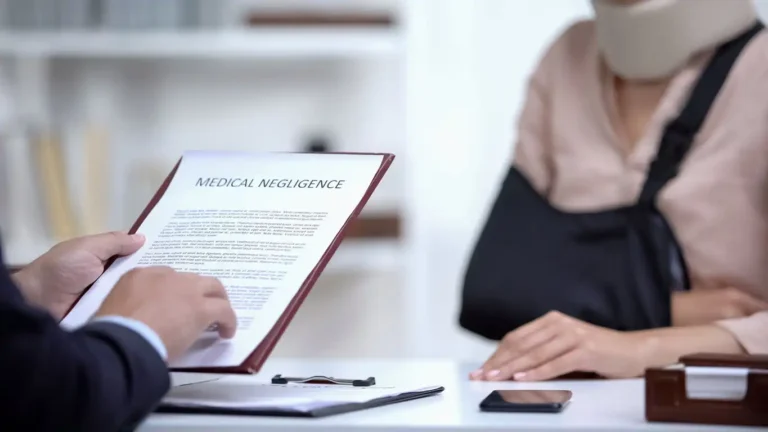Dealing with insurance companies after a bicycle accident can be a complex and often frustrating process. Insurance companies are, first and foremost, businesses that aim to minimize payouts and protect their bottom line. Understanding how to navigate these interactions is essential to ensure you receive fair compensation for your injuries and damages. Here’s what you need to know about dealing with insurance companies after a bicycle accident.
1. Report the Accident Promptly
As soon as possible after your accident, report it to your insurance company. Provide the basic details, such as the date, time, and location of the incident. This notification is a necessary step in preserving your rights to make a claim. Avoid discussing fault at this stage, as that will be determined after an investigation.
2. Know Your Policy Coverage
Review your insurance policy to understand what coverage you have. In California, cyclists often rely on their auto insurance or homeowner’s insurance if the at-fault driver is uninsured or underinsured. Policies may include uninsured/underinsured motorist (UM/UIM) coverage, which can help cover medical expenses and other damages when the responsible party does not have sufficient insurance.
3. Be Cautious with Recorded Statements
Insurance adjusters may contact you and request a recorded statement about the accident. It’s important to be cautious and avoid giving any recorded statements without first consulting with an experienced bicycle accident attorney. Insurance adjusters are trained to look for inconsistencies or statements that could reduce your claim’s value. Keep your responses brief and factual, and never admit fault.
4. Don’t Accept the First Settlement Offer
Insurance companies often present a quick initial settlement offer, which may seem tempting, especially if you are facing medical bills and other expenses. However, these initial offers are typically low and may not cover the full extent of your injuries and damages. Accepting an offer too early can prevent you from seeking additional compensation for ongoing medical treatment, lost wages, or pain and suffering.
Tip: Consult with an attorney to review any offers and determine if they are fair and comprehensive.
5. Document Everything
Maintain thorough records related to your accident and any correspondence with the insurance company. This includes:
- Photos and videos of the accident scene, your injuries, and any damage to your bicycle
- Medical records and bills
- Repair or replacement estimates for your bike
- Notes from conversations with insurance adjusters, including dates and what was discussed
Having detailed documentation will support your claim and provide evidence if there are disputes or if you need to escalate your case.
6. Seek Medical Treatment and Keep Records
Even if your injuries seem minor, seek medical attention immediately after the accident. Some injuries may not be evident until days later, and having medical records documenting your treatment can strengthen your claim. Keep all medical bills, prescriptions, and records of any follow-up appointments or physical therapy, as these will be essential when negotiating your settlement.
7. Understand Comparative Negligence
California follows a pure comparative negligence system, which means you can still recover damages even if you are partially at fault for the accident. However, your compensation will be reduced by your percentage of fault. Insurance companies may try to assign a higher degree of fault to you to lower their payout, so it’s crucial to challenge any unfair fault assignments. An attorney can help you present evidence to minimize your share of liability and ensure you receive the maximum compensation.
8. Don’t Rush the Process
The insurance company may try to pressure you into settling quickly, but it’s important to take your time to fully assess your injuries and their long-term effects. You might need ongoing medical treatment, surgeries, or rehabilitation that could lead to additional expenses. Only settle when you have a clear understanding of the full impact of your injuries.
9. Hire an Experienced Bicycle Accident Lawyer
Navigating the claims process can be challenging, and insurance companies may use various tactics to reduce or deny your claim. Hiring an experienced bicycle accident lawyer ensures that your rights are protected and that you have an advocate who can negotiate effectively on your behalf. A lawyer can:
- Communicate with the insurance company on your behalf
- Collect and present evidence to support your claim
- Negotiate a fair settlement that covers all damages, including medical expenses, lost income, and pain and suffering
- Represent you in court if a fair settlement cannot be reached
10. Prepare for Potential Legal Action
If the insurance company is not offering a fair settlement, you may need to consider filing a personal injury lawsuit. Your attorney will guide you through this process, ensuring that all necessary steps are taken, from filing your claim to presenting your case in court. In California, the statute of limitations for personal injury cases is typically two years from the date of the accident, so it’s important to act within this timeframe.
Final Thoughts
Dealing with insurance companies after a bicycle accident can be intimidating, but with the right approach and legal support, you can protect your rights and secure the compensation you deserve. Stay vigilant, document everything, and seek professional legal guidance to navigate the process with confidence.



